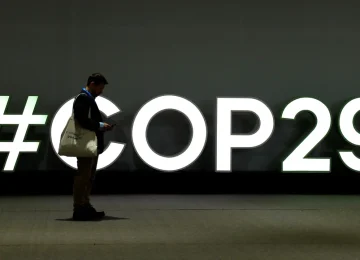International sustainability non-profit, Forum for the Future (FoF) has published its latest Future of Sustainability report, “Courage to Transform.”
FoF has analysed examples of how businesses are responding to today’s ‘polycrisis’ and highlights four possible future trajectories.
The report comes on the back of a series of unprecedented and extreme weather events, including wildfires across the globe, record-breaking heat waves in Europe, and intensifying air pollution and flooding in Asia. The World Economic Forum defines polycrisis as a cluster of related global risks with compounding effects.
The crux:
The report recognizes the challenges businesses face in the present.
Apart from growing geopolitical tensions, businesses face challenges due to inflation, price volatility, rapidly changing reporting standards, and a politicized ESG agenda.
Some highlights:
- Maximising shareholder value remains the top priority
- Actions fall short of creating a lasting impact
- Overreliance on data and tech and
- Businesses fundamentally rethink their responses to sustainability challenges
The report registers 5 key shifts, including a transformative approach that leaders and change makers must make. These are listed below.
From a risk prevention mindset to a transformative one: This involves seeing opportunity, not risk, in change, while investing in both climate adaptation and mitigation measures.
- From addressing the symptoms of our social and environmental crises to tackling their root causes: This involves moving beyond incremental solutions that are likely to fail.
- From passively responding to their operating context to actively shaping it: This involves a shift from influencing policy to better engaging stakeholders and customers, businesses must increase their agency to drive change.
- From slow centralized decision-making to more agile distributed governance models
- Distributing responsibilities instead of consolidating power. The idea is to generate value creation across multiple levels and stakeholder groups.
- From failing to acknowledge the influence of individual, organizational and contextual bias to identifying and removing this bias in risk assessment: This involves businesses making a shift for a more equitable and balanced decision-making in the long term.
James Payne, Forum for the Future’s Global Strategic Lead – Purpose of Business, said, “There is not enough focus right now on how businesses can most effectively achieve their sustainability goals against a backdrop of ongoing disruption. Understanding the different future, you could face clarifies the role your business could play in creating them.”
Dr Sally Uren, Chief Executive, Forum for the Future, said, “Pressure on businesses to step up is mounting. This report fills a gap in guidance on what action can be taken when the headwinds are getting stronger. The five shifts will enable businesses to deliver on transformational agendas.
Glyn Richards, Group Director of sustainability, Bupa Group, said, “More than ever before, there’s an expectation that businesses should be proactive and deliver meaningful change when it comes to sustainability. For a long time, this agenda has been treated as separate from commercial priorities, global market developments and regulatory pressures, but it’s clear that sustainability needs to become part of the decisions and discussions impacting future business success and efficiency. As a healthcare company, that could mean focusing on helping people stay well and encouraging healthy lifestyles – which could benefit patients, as well as the planet.”











